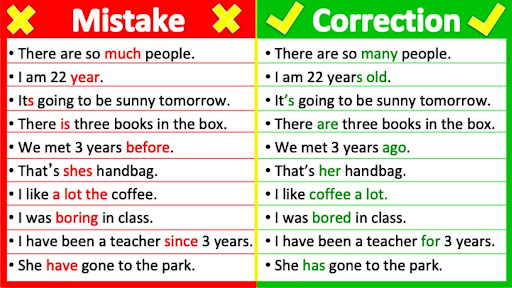The IELTS exam is more than just a test; it’s a stepping stone to your dreams. Whether you’re aiming to study abroad, secure a job, or simply prove your proficiency in English, taking the IELTS can open numerous doors. However, many candidates find themselves overwhelmed by the exam’s intricacies. Fear not, as PrepareHow is dedicated to making your preparation process smooth and effective. We’ll delve into common errors and offer practical insights to help you avoid them, ensuring that your IELTS experience is as stress-free as possible.
Navigating the IELTS exam can be as tricky as trying to eat spaghetti with a spoon. Many test-takers, despite their best efforts, find themselves tripping over common pitfalls.
Misinterpreting the Questions
Imagine preparing for a history exam and ending up in a geography class; that’s how it feels when you misinterpret an IELTS question. Many test-takers dive into answering without fully grasping what is being asked. This is particularly common in the reading and listening sections, where a single misunderstood word can lead you astray. The trick lies in taking a deep breath, reading (or listening) carefully, and ensuring you comprehend the core of the question before crafting your response.
Overcomplicating Answers
In an effort to impress, candidates often transform simple responses into convoluted masterpieces. While it’s tempting to showcase your extensive vocabulary, clarity should be your priority. The writing section, for instance, rewards coherence and logical flow more than a whirlwind of fancy words. Think of it like decorating a cake: sometimes, less is more. A beautifully simple design can be far more appealing than an over-the-top confection.
Strategies for Simplicity
Maintaining simplicity in responses involves a mindful approach to writing and speaking. One useful technique is to start with a clear thesis statement or main idea and build around it with supporting details. This helps in keeping the focus sharp and the content relevant. Practicing this method during preparation can lead to naturally clearer and more coherent responses.
Additionally, regularly reading well-written articles and essays can provide examples of effective communication that is both engaging and straightforward. By absorbing these examples, candidates can internalize strategies for maintaining simplicity in their own responses.
Time Mismanagement
Time can be a stealthy opponent in the IELTS exam. Many find themselves staring at the clock with a sinking feeling as precious minutes slip away. Each section of the test is meticulously timed, so keeping up with the pace is crucial. Practicing under timed conditions can be immensely beneficial. Imagine running a marathon without any training runs – that’s what taking the IELTS without time management practice feels like. You wouldn’t want to be caught sprinting in the last ten minutes, would you? Check out our time management strategies for IELTS.

Neglecting Spelling and Grammar
While creativity and ideas are celebrated, basic errors in spelling and grammar can act as silent score saboteurs. It’s akin to dressing up for a formal event but forgetting to iron your clothes – the small details matter. Regular practice and proofreading can mitigate these issues. Picture your writing as a garden: weeding out mistakes allows your ideas to bloom beautifully.
Common Grammatical Mistakes to Watch Out For
Spelling and grammatical errors can creep in unnoticed, especially under the pressure of an exam. Common mistakes include confusing homophones (like “their” and “there”), subject-verb agreement issues, and incorrect use of tenses. Identifying these frequent errors in your practice sessions can be incredibly beneficial. By being aware of what to look out for, you can develop strategies to avoid them, such as proofreading and revising your work systematically.
Techniques for Improvement
Enhancing your spelling and grammar skills involves regular practice and constructive feedback. Engaging in activities like reading extensively, writing essays, and participating in language exercises can significantly improve your accuracy. Additionally, using tools such as grammar checkers and seeking feedback from teachers or peers can provide valuable insights into areas that need improvement. This ongoing process of learning and refining can help you develop a stronger command of English, ultimately boosting your IELTS performance.

Ignoring Pronunciation and Intonation
In the speaking section, some candidates treat their responses like a monologue delivered by a robot. Monotone delivery and mispronunciations can significantly impact your score. Engaging with your examiner conversationally, varying your tone, and pronouncing words correctly can make your speech as pleasant as a well-composed symphony. Think of it as chatting with a friend over coffee, rather than reciting lines in a school play.
Not Following Instructions
This is the equivalent of baking cookies without reading the recipe – the outcome is rarely as intended. Each section of the IELTS has specific instructions that guide your responses. Overlooking these can lead to mistakes that are easily avoidable. Ensuring that you follow the given guidelines can be the difference between a good score and a great one.
Practicing with Inconsistent Methods
Practicing for the IELTS using random, unverified sources can be like training for a race by jogging in your living room. Consistency and quality of practice materials are key. Utilizing reputable sources, such as official IELTS practice tests, can better prepare you for the actual exam. It’s like training with a professional coach rather than relying on YouTube workout videos.
Underestimating the Speaking Test
Some test-takers believe that their speaking skills are naturally good enough to wing it. However, the speaking test is more than just talking; it evaluates coherence, fluency, vocabulary, and grammar. Regular practice, including mock interviews, can significantly boost your performance. Think of it like preparing for a debate rather than a casual chat. Check out our extensive guide on how to crack the speaking test in IELTS.
Building Confidence Through Practice
Confidence plays a crucial role in performing well in the speaking test. Many test-takers feel anxious about speaking in front of an examiner, which can hinder their performance. Regular practice, especially through mock interviews, can alleviate this anxiety. By simulating the test environment and receiving constructive feedback, candidates can become more comfortable and confident. This practice not only helps in honing speaking skills but also in building the mental resilience needed to perform under pressure. Think of it as rehearsing for a play – the more you practice, the more natural and assured your performance becomes on the big day.

Skipping the Review Stage
Rushing through the exam and not leaving time to review your answers is akin to submitting a first draft of an essay. Reviewing can catch errors and improve responses. Just as a sculptor refines their work, taking a few minutes to review can polish your answers, enhancing their clarity and correctness.
Conclusion
Avoiding common IELTS mistakes is a blend of careful preparation, mindful practice, and a sprinkle of common sense. Think of the IELTS as a dance; knowing the steps and practicing them makes for a smooth performance. So, put on your dancing shoes, and waltz your way to a high score, leaving those mistakes in the dust. And remember, it’s not just about the destination but enjoying the journey – even if you trip over a few steps along the way. Get in touch with us today to take your IELTS preparation to the next level!
Read More about IELTS:












